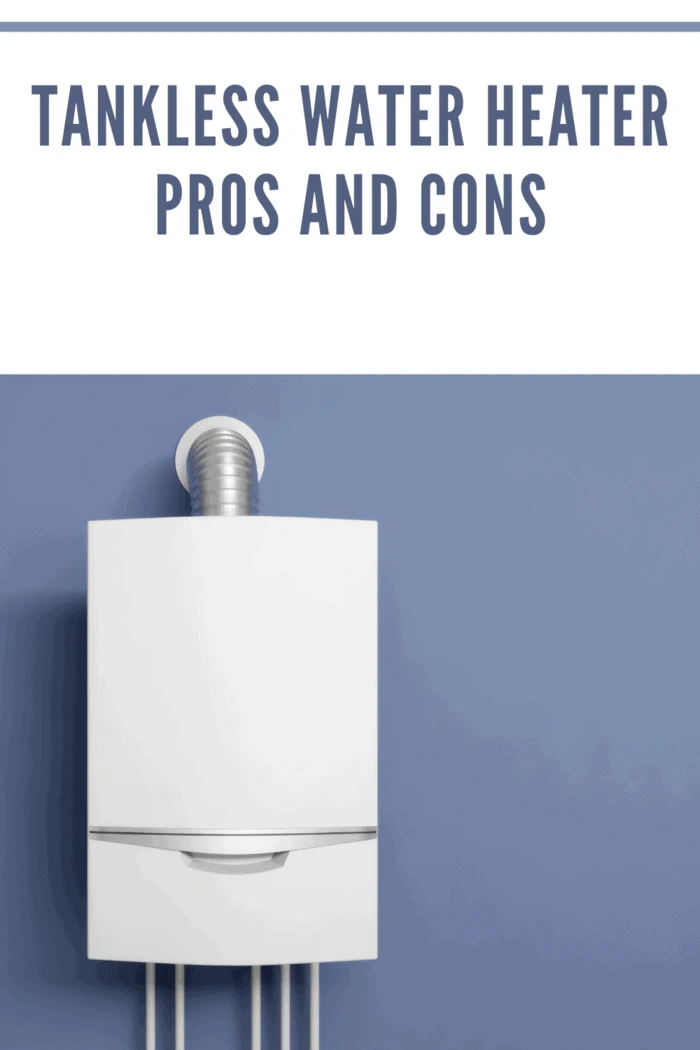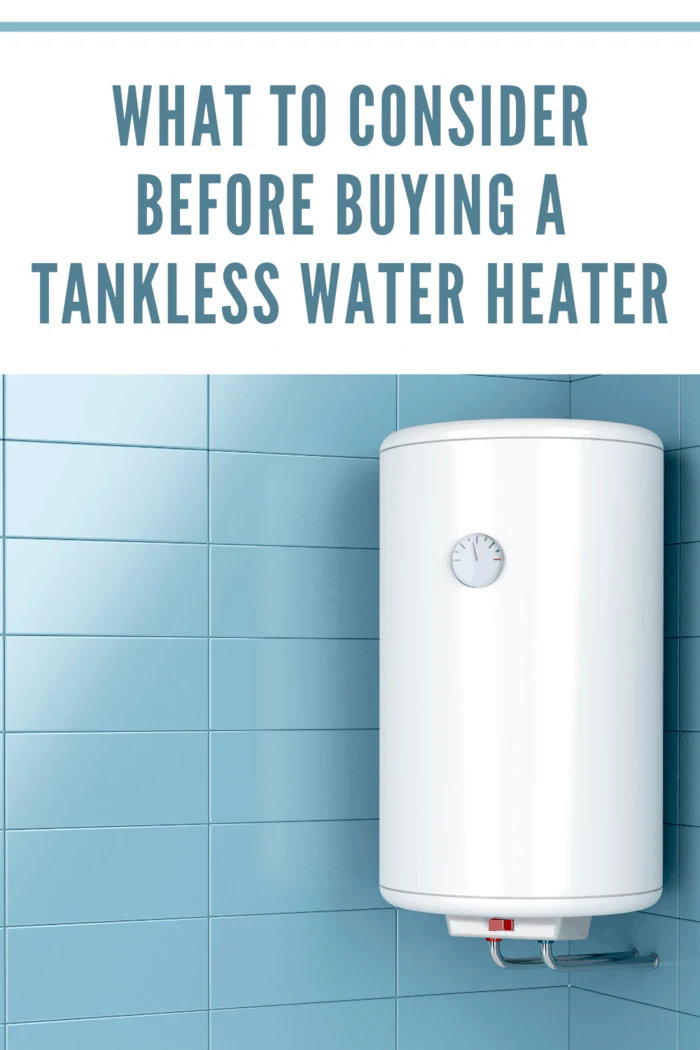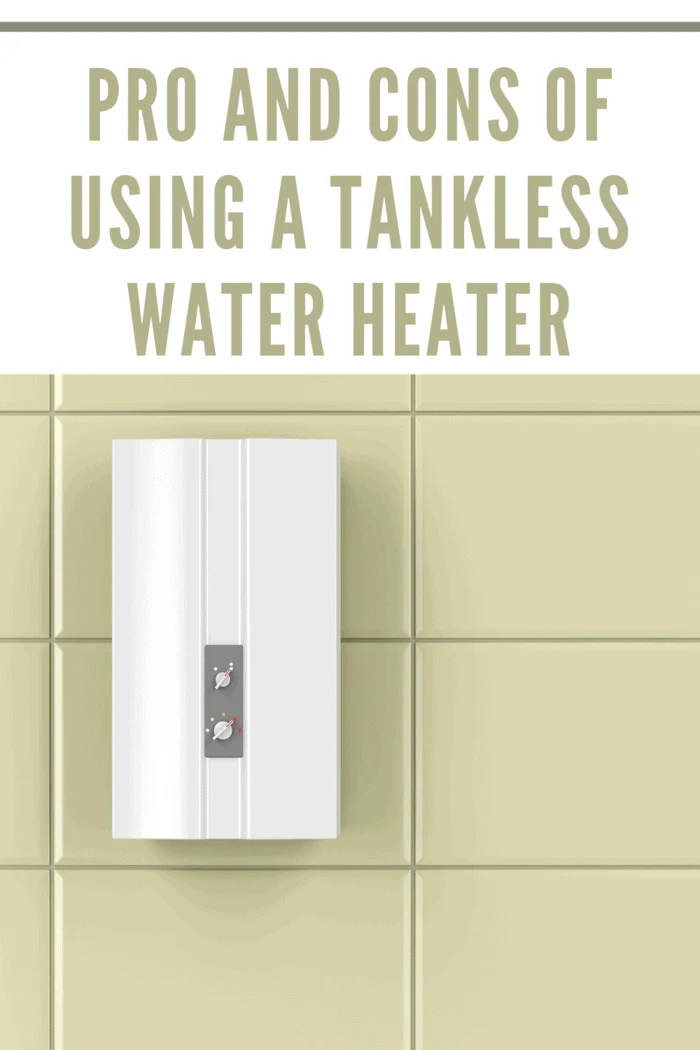There are several reasons American homeowners are becoming more inclined to upgrade their water heaters from the traditional unit to the modern tankless water heater system.
In most homes, making the switch between the traditional and the tankless heater comes with a lot of deliberation, especially as most homeowners have to consider the pros and cons of the decision, says HBR.org.
Shower Insider understands the overwhelming nature of making such choices as this and has put together a comprehensive list of pros and cons of the tankless water heater to help you make the best choice for your home and family.

Pro and Cons of Using a Tankless Water Heater
Pros
#1 – The Tankless Water Heater Provides You With An On-Demand Hot Water
Home Guides experts say that one of the major advantages of the tankless water heater is that it allows you access to on-demand hot water without dealing with the extra energy consumed by the traditional water heater, which has a tank for storing hot water.
The tankless water heater is famed to deliver instantaneous hot water.
This ability enables it to circumvent standby heat loss which is a major disadvantage of the traditional tank-style water heaters.
The instant water heater is also equipped with a heat exchanger, which allows it to deliver heat from one element to another, in this case, from a coil to water.
#2 – Endless Supply Of Hot Water
In the case of the traditional tank-style water heater, being the last person on the line to take a bath can be a nightmare as, most often than not, others who have gone before you may have exhausted the hot water supply. Read skincare tips on how to take a bath on makeup.com before you soak!
This major disadvantage is taken care of in a tankless water heater as it allows users to enjoy both instantaneous and endless supply of hot water.
A tankless water heater may be the best bet to solve this major problem if you are on the receiving end of the lukewarm or cold water after waiting in line to take a bath.

#3 Longevity
The tankless water heater has been improved upon over the years, allowing it to offer you the best design and longevity.
Compared to the tank-style traditional heater, a tankless heater can last for as long as two decades under proper management and maintenance.
On the other hand, the traditional water heater lasts for about 10 to 13 years.
#4 – Space-Saving
Modern homes are designed to maximize space, making the traditional water heater an unsuitable addition to the house.
However, the tankless water system is a brilliant space-saving addition as users do not have to worry about the extra space that the tanks take up in the bathroom.

#5 Longer Warranty
Tankless heaters are designed to be efficient. As such, manufacturers are open to offering a more extended warranty period on the units compared to the traditional tank-style water heaters.
If you are essentially in the market for more extended warranty periods, the tankless system is the best option for your needs.
#6 Available In Options
Another important advantage of the tankless water heater system is that it allows users to choose which available power options best suit their needs.
Buyers can choose between the electric and the gas-fueled heater.
The gas heated tankless water heater is also available in the gas-powered and gas-powered propane options.
#7 Energy Saving
The tankless water system has been designed to conserve energy, thus allowing users to get more value for less running cost.

Cons
#1 Lag Time
One of the most significant disadvantages of the tankless water heater is that it can only heat a certain amount of water, between 2-3 gallons of water at a time.
This makes it exhibit some lag time in delivering hot water, especially when needed for multi-tasking activities, explains houzz.com.
#2 Hot Water Inconsistencies
While the tankless heater delivers instantaneous hot water, there could be a problem with water temperature when several people choose to take their baths simultaneously.
In some cases, users may notice lukewarm water during their bath because the unit hasn’t fully recharged the water to the desired temperature needed.
#3 An Investment
Purchasing a tankless water heater is considered an investment as it is almost twice as expensive as the tank-style option.
The gas-fueled tankless heater is also almost twice as expensive as the electric tankless heater and requires additional expertise during installation.
For old houses, homeowners may also face the financial burden of upgrading their electrical systems.
#4 Add-On Equipment May Be Required
In many tankless heater systems, homeowners may need to purchase specific add-ons depending on their location.
In some areas, homeowners may have to worry about water softeners to prolong the system’s lifespan.
#5 Size Matters
The size of the water heater matters concerning its delivery.
Smaller tankless water heaters may be incapable of serving the home’s needs simultaneously.
